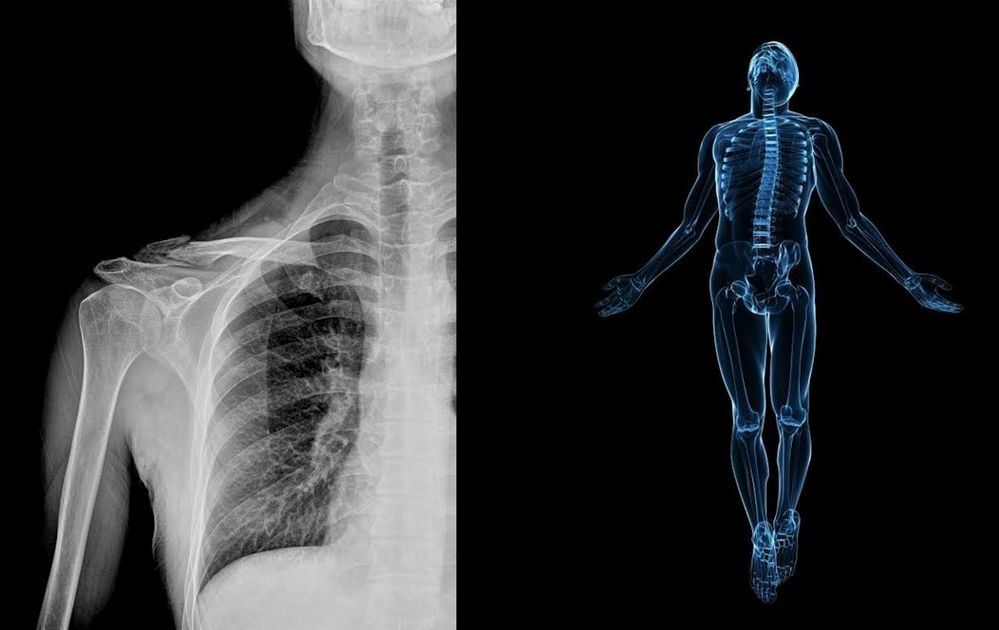Page 11151
May 27, 2016
Blockchain Technology Will Profoundly Change the Derivatives Industry
Posted by Shailesh Prasad in categories: bitcoin, engineering, finance
Editor’s note: This is a guest post by Matt O’Brien.
As the hype and pessimism around blockchain technology converge toward reality over the next several years, one certainty emerging among Wall Street and Main Street traders is that advancements in platform technology will profoundly change how commonly used securities known as derivative contracts will be traded. The distributed ledgers inconceivable just a couple of years ago are on the precipice of ushering in a new era of innovative financial engineering and precision in risk management.
Wall Street firms are beginning to tinker with blockchain and smart contract technology that will allow buyers, sellers and central clearing houses of derivative trades to share information, such as KYC (Know Your Customer), in real time across various distributed ledger platforms unleashing incredible efficiencies.
Continue reading “Blockchain Technology Will Profoundly Change the Derivatives Industry” »
May 27, 2016
AI ‘doctors’ will diagnose your X-rays
Posted by Shailesh Prasad in categories: biotech/medical, health, robotics/AI, supercomputing
An Israeli medical imaging company has signed a deal with a Utah-based healthcare provider that could change the way we diagnose certain conditions. Zebra Medical Imaging is teaming up with Intermountain to work on a neural network that will compare fresh X-rays with the “millions” stored in its own database. The eventual aim of the project is to offer up suggestions to radiographers and other medical professionals and eliminate costly misdiagnoses.
For instance, let’s imagine that you’ve gone to hospital for some unknown condition and you get an X-ray. Rather than handing the slide to a doctor, who could miss a small shadow or other minor clue, the image would be handed to the computer. It would use deep learning to trawl an anonymized patient database looking for any anomalies that you might be suffering from. The current system will work on bone health, cardiovascular analysis and lung conditions, although who knows where the possibilities will end.
As deep learning technology gets more powerful, smaller and significantly cheaper, the potential for AI to assist doctors becomes more realistic. IBM has spent the last few years pushing Watson, its homegrown supercomputer, as a system to aid decision making for patients. At the same time, companies like LG are trying to shrink medical imaging technology to end the days of bulky hospital equipment being available for a chosen few. All in all, the idea of a medical tricorder is going from fantastical to plausible in less time than you’d expect.
May 27, 2016
The BIG Library: Books About Basic Income
Posted by Shailesh Prasad in category: economics
Somewhere along the way people started considering me somewhat of an expert on the topic of basic income and so I’m frequently asked for book recommendations. Because of that, I put together a Listmania list, but Listmania no longer exists so I’ve decided to put together a new more comprehensive list here on Medium which I will make a point of updating as new books are released. If you don’t see a book here and think it should be listed, please let me know so I can add it.
Optionally, if you wish to purchase one of these books, please consider using Amazon Smile which you can do by changing www.amazon.com in the url to smile.amazon.com. This will give a portion of the purchase to charity, and the charity I recommend is GiveDirectly because that will help support their historic 10–15 year long universal basic income experiment in West Africa.
Also, due to popular request, books of fiction that include basic income can be found at the end of this list. And if you’re looking for academic papers to read instead, here’s a great list on basicincome.org.
Continue reading “The BIG Library: Books About Basic Income” »
May 27, 2016
Researchers on the brink of regrowing damaged human bone and tissue
Posted by Shailesh Prasad in category: biotech/medical
Australian researchers believe they are close to being able to use stem cells to regrow human bone and tissue damaged by injury, illness or old age.
May 27, 2016
Russia is working on a taxi to the moon
Posted by Shailesh Prasad in category: space travel
A Russian rocket company has announced that it’s working on a space taxi that’ll shuttle crews from the ISS down to the moon. The plans were announced at an international conference on space exploration just outside Moscow and reported by Russia Today. The craft, provisionally named Ryvok, would be permanently docked on the ISS — or its replacement — transporting cargo and crews to the lunar surface. Each flight would be powered by fuel in an “accelerator block,” brought up from Earth on the back of a Russian rocket. The report explains that it’s likely to be the Angara A5, a heavy-lift vehicle that’s intended to replace the trusty old Soyuz.
Once it’s time to return to the ISS, the craft will blast off the moon for the five-day return journey. In order to slow its speed on approach, the ship will deploy a 55-square-meter “umbrella” that’ll reduce its speed like a parachute on a drag racer. At least, that’s the idea. The craft is expected to be developed by 2021, with the first launches anticipated to take place in 2023. The company is suggesting that its concept would be cheaper and faster to implement, since you don’t have to wait for the Angara rockets to be certified safe for human transportation.
If there’s one thing that’s given us pause, it’s the historical parallel between this Russian plan and Star Trek: Deep Space Nine. After all, things were relatively staid on the space station until the crew got their hands on the USS Defiant. After that point, the whole Federation suddenly found itself embroiled in a universe-wide war with a vastly superior enemy. There’s always a slight worry that, mere months after Ryvok docks at the ISS, that humanity, too, will find itself similarly overwhelmed.
May 27, 2016
Triggering the protein that programs cancer cells to kill themselves
Posted by Sean Brazell in category: biotech/medical
 WEHI | Apoptosis
WEHI | Apoptosis
Researchers at the Walter and Eliza Hall Institute in Australia have discovered a new way to trigger cell death that could lead to drugs to treat cancer and autoimmune disease.
Programmed cell death (a.k.a. apoptosis) is a natural process that removes unwanted cells from the body. Failure of apoptosis can allow cancer cells to grow unchecked or immune cells to inappropriately attack the body.
May 27, 2016
A Futuristic Short Film HD: “Telescope” — by The Telescope Team
Posted by Sean Brazell in categories: entertainment, space

Watch this fantastic futuristic short film directed by talented Collin Davis and Matt Litwiller, written by Eric Bodge and shot by Travis Labella! The year is 2183. Earth is dead. With all evidence of organic life lost, a cosmic archaeologist travels faster than light into deep space to capture images of the once vibrant planet. When his vessel is damaged he must take matters into his own hands, risking his life to witness humanity’s lost home.
Telescope Sound Track — Download Now: http://www.telescopemovie.com/about/2013/11/18/telescope-sou…wnload-now
Continue reading “A Futuristic Short Film HD: ‘Telescope’ — by The Telescope Team” »
May 27, 2016
Bollywood dancing in Harefield Hospital
Posted by Lily Graca in category: biotech/medical

Indian dance is being used to help patients with heart and respiratory problems at Harefield Hospital in West London. Here’s what it looks like!
May 27, 2016
Loop quantum gravity theory offers glimpse beyond the event horizon
Posted by Andreas Matt in categories: cosmology, quantum physics
In principle, nothing that enters a black hole can leave the black hole. This has considerably complicated the study of these mysterious bodies, which generations of physicists have debated since 1916, when their existence was hypothesized as a direct consequence of Einstein’s Theory of Relativity. There is, however, some consensus in the scientific community regarding black hole entropy—a measure of the inner disorder of a physical system—because its absence would violate the second law of thermodynamics. In particular, Jacob Bekenstein and Stephen Hawking have suggested that the entropy of a black hole is proportional to its area, rather than its volume, as would be more intuitive. This assumption also gives rise to the “holography” hypothesis of black holes, which (very roughly) suggests that what appears to be three-dimensional might, in fact, be an image projected onto a distant two-dimensional cosmic horizon, just like a hologram, which, despite being a two-dimensional image, appears to be three-dimensional.
As we cannot see beyond the event horizon (the outer boundary of the back hole), the internal microstates that define its entropy are inaccessible. So how is it possible to calculate this measure? The theoretical approach adopted by Hawking and Bekenstein is semiclassical (a sort of hybrid between classical physics and quantum mechanics) and introduces the possibility (or necessity) of adopting a quantum gravity approach in these studies in order to obtain a more fundamental comprehension of the physics of black holes.
Planck’s length is the (tiny) dimension at which space-time stops being continuous as we see it, and takes on a discrete graininess made up of quanta, the “atoms” of space-time. The universe at this dimension is described by quantum mechanics. Quantum gravity is the field of enquiry that investigates gravity in the framework of quantum mechanics. Gravity has been very well described within classical physics, but it is unclear how it behaves at the Planck scale.
Continue reading “Loop quantum gravity theory offers glimpse beyond the event horizon” »














